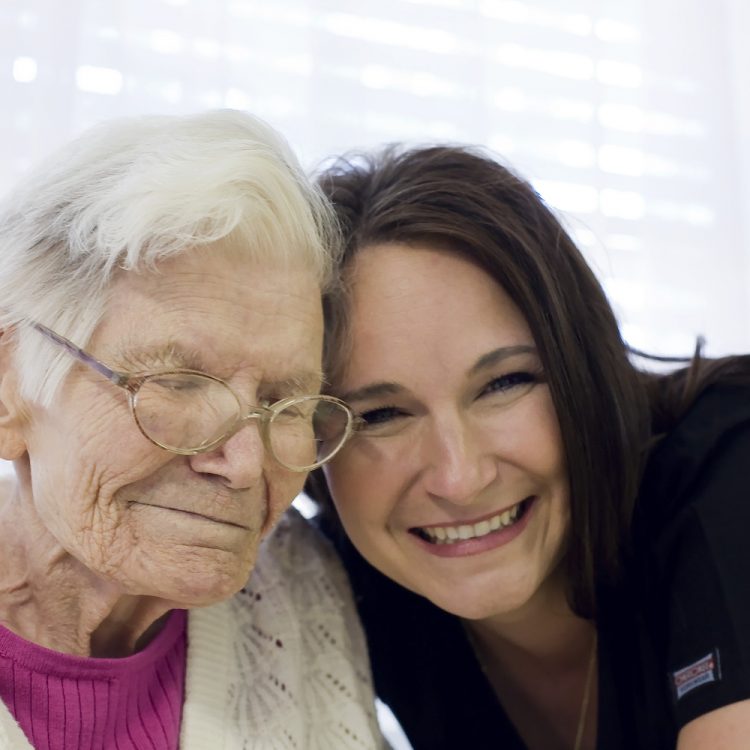Hospice is unlike many forms of traditional medical care in that hospice treats the patient, not the disease. The purpose of VNA Hospice Care is to provide comprehensive, expert care that provides support for patients in the last months of their lives. Our goal is to tailor a plan of care specifically designed with the goals of the patient and family in mind. The philosophy of VNA Hospice Care is to provide support for the patient’s emotional, social and spiritual needs, along with a treatment plan designed around symptom management.
Very well, but what does “treating the whole person” mean? The philosophy of VNA Hospice Care is to provide support for the patient’s emotional, social and spiritual needs as well as medical symptoms as part of treating the whole person.
“Treating the whole person is at the foundation of VNA Hospice Care,” says VNA’s Vice President and Chief Nursing Officer Olivia Rogers. “It’s a multi-disciplined approach that maximizes the comfort and support we can provide our patients, allowing them to approach the end of life on their own terms.”
Treating the whole person means exactly that – the person is more than the disease or condition. At VNA, we say hospice is about life, and that is true. Hospice reaffirms life, focuses on dignity, brings comfort and quality to the time remaining. Hospice does not hurry death. Hospice does not prevent death. Death is the inevitable destination at the end of hospice, and like any destination, the traveler must prepare for arrival.
That preparation is what makes treating the whole person so vital, and why providers like VNA Hospice Care bring together multiple disciplines to help. Doctors and nurses care for the patient’s health. Chaplains care for the patient’s spiritual needs.
Social workers address goals of care and care planning, advance directives, and assistance with life’s transitions, such as moving to a new location or facility. Our Child life specialists provide support to families with children. Our home health aides help patients with personal care, and our volunteers provide a variety of services such as companionship, respite visits for families and memory making activities.
One group supports the other, creating a network of care to attend to all the patient’s needs, from symptom and pain management to personal care to emotional and grief troubles to guidance through the unknown. These needs commonly include prescriptions to control pain and manage other symptoms; physical and occupational therapies; medical supplies and equipment; medical social services; dietary and other counseling; continuous home care when needed; and bereavement services.
“Hospice is the only health care approach that uses a team to provide total patient care—mind, body and spirit,” says Rogers. “We utilize nurses, social workers, chaplains, hospice aides and volunteers to care for all the needs of our patients and their caregivers. What a privilege to journey down this road with our patients and families.”
Care of the patient’s family is an integral part of VNA Hospice Care, so much so the family – and other loved ones, of course – are treated as an extension of the patient by the VNA Hospice Care team. As the end of life approaches, the patient’s thoughts often turn to the loved ones left behind, to a desire to know they will be all right. That’s why VNA Hospice Care offers more than a year of ongoing bereavement support to the family left behind after the patient passes, not only to provide support for the grieving, but to give the patient peace of mind knowing his or her family will be looked after and cared for by a team of people the patient knows.
VNA Hospice Care goes beyond treating the patient to treating the family as an extension of the patient,” says Rogers. “It’s a part of treating the whole person.”
Death is a natural part of life. VNA Hospice Care recognizes and accepts that. When a cure is no longer possible, and thoughts turn from prolonging life to quality of life, it’s important that all aspects of that life be considered. A patient is not a condition and a patient is more than a diagnosis. A patient is a whole person, with physical, emotional, social and spiritual needs. VNA Hospice Care is ready to treat them all.
